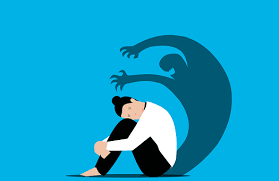Have you ever noticed that your need for perfection is impacting your life in negative ways? If so, you may be suffering from scrupulosity OCD. Scrupulosity OCD is a type of obsessive-compulsive disorder (OCD) where an individual feels an excessive need to adhere to moral and religious rules. Luckily, there are many treatment methods available for those suffering from this form of OCD. In this article, we will explore all the different types of treatment available for scrupulosity OCD, including cognitive behavioral therapy (CBT), medications, and other therapies. Read on to learn more about how you can get the help you need!
Contents
What is Scrupulosity OCD?

Scrupulosity OCD is a subtype of OCD that is characterized by religious or moral obsessions and compulsions. People with scrupulous OCD are obsessed with the fear of sinning or being evil and often engage in compulsive behaviors to prevent themselves from committing sinful acts. Common compulsions include prayer, confessing sins, and avoidance of people, places, and things that might trigger sinful thoughts or behavior. Treatment for scrupulosity OCD typically involves exposure and response prevention (ERP) therapy, which helps patients confront their fears and resist their compulsions.
The reasons for the development of Scrupulosity OCD are not clear. However, it is believed that it could be either due to an individual’s upbringing or could be a result of intense religious indoctrination. Also, some studies suggest that scrupulosity OCD may be a result of genetic factors.
The Different Types of Scrupulosity OCD
There are different types of scrupulosity OCD, each with its own unique set of symptoms and behaviors. Treatment for scrupulosity OCD will vary depending on the type of OCD the individual has.
Type 1: Religious Scrupulosity
This type of scrupulosity OCD is characterized by excessive worry and fear about religious beliefs and practices. Individuals with this type of OCD may obsessively worry about offending God or going to Hell and may go to great lengths to avoid these fears. They may also have difficulty participating in religious activities or conversations due to their fear of saying or doing something wrong.
Type 2: Moral Scrupulosity
Moral scrupulosity OCD is characterized by an excessive focus on morality and ethics. Individuals with this type of OCD may obsess over whether their actions are right or wrong, and may spend a lot of time second-guessing themselves. They may have a strict moral code that they follow rigorously, or they may avoid certain activities altogether out of fear of breaking their code.
Type 3: Perfectionism Scrupulosity
Perfectionism scrupulosity OCD is characterized by an obsessive need for perfection in all areas of life. Individuals with this type of OCD may have difficulty completing tasks or projects due to their insistence on everything being perfect. They may also avoid social interactions or situations where they feel they will be judged harshly for not being perfect.
Scrupulosity OCD Treatment Methods

There are many scrupulous OCD treatment methods available. The most important thing is to find a treatment method that works for you. Here are some common scrupulosity OCD treatment methods:
Psychotherapy
One of the most common and effective treatment methods for scrupulosity OCD is psychotherapy. There are many types of psychotherapy, such as:
Cognitive Behavioral Therapy
Cognitive behavioral therapy (CBT) is a type of psychotherapy that can help individuals learn how to identify, challenge, and change their irrational thoughts and beliefs. CBT can also help you gain insight into your behaviors and develop strategies to resist compulsions.
Dialectical Behavioral Therapy
An effective therapy for scrupulosity OCD is dialectical behavioral therapy (DBT). DBT helps individuals to understand the relationship between their thoughts, emotions, and behaviors. It also teaches skills such as mindfulness, interpersonal effectiveness, and emotion regulation.
Exposure and Response Prevention
Exposure and response prevention (ERP) is a type of cognitive behavioral therapy that helps individuals confront their fears and resist their compulsions. During ERP, patients are exposed to the situations and thoughts that trigger their OCD in a safe environment and are taught how to cope with them without performing rituals or engaging in compulsive behavior.
Medication
Some individuals may find that taking medication can help reduce their symptoms of scrupulosity OCD. Selective serotonin reuptake inhibitors (SSRIs) are the most commonly prescribed medications for OCD. Furthermore, SSRIs work by increasing levels of serotonin in the brain, which can help to reduce anxiety and compulsions.
These medications make it a bit easier for the individual to focus on the psychotherapy techniques and can make it easier to practice exposure and response prevention. It is important to note that medication should be used in conjunction with therapy, as medication alone will not cure OCD.
Support Groups
Some individuals may also find it helpful to join a support group for people with OCD. Support groups provide individuals with an opportunity to connect with others who are dealing with similar struggles and provide them with a sense of community, understanding, and encouragement.
Self-Help Strategies
In addition to the treatment methods described above, some self-help strategies can help manage scrupulosity OCD. These include:
- Practicing mindfulness and meditation
- Connecting with nature
- Challenging irrational thoughts
- Establishing a routine
- Keeping a journal of your thoughts and feelings
- Focusing on the present moment
Benefits of Scrupulosity OCD Treatment

While scrupulous OCD can be distressing and disrupt daily life, there are effective treatment options available.
Some of the other benefits of scrupulosity OCD treatment include:
1. Improved self-acceptance: Treatment for scrupulosity OCD can help you learn to accept yourself and your beliefs without feeling excessive guilt or anxiety.
2. Reduced anxiety: Through treatment, you can learn to manage your anxiety levels more effectively, which reduces the severity and frequency of obsessive thoughts.
3. Improved relationships: Treatment can help you build healthier relationships with family and friends by reducing intrusive thoughts related to religion or morality.
4. Increased productivity: By reducing worry and obsession, you can focus more on the tasks at hand, leading to improved productivity at work or school.
5. Improved quality of life: People who receive treatment for scrupulosity OCD often experience an increase in overall happiness and life satisfaction.
What Is the Best Treatment Method for Scrupulosity OCD?
The best treatment for scrupulosity OCD depends on various factors, such as:
Severity of Signs
One of the most common factors of consideration is the severity of the signs and symptoms a person is manifesting. If the individual does not show intense distress or experienced significant disruption in daily functioning, then cognitive-behavioral therapy (CBT) combined with exposure and response prevention (ERP) may be recommended.
Underlying Causes
Some people may have scrupulous OCD as a result of underlying mental health issues, such as depression, anxiety, or post-traumatic stress disorder (PTSD). In this case, it is important to address these conditions first before focusing on treating scrupulosity OCD. Medications, such as selective serotonin reuptake inhibitors (SSRIs), may also be prescribed to help manage underlying issues such as depression and anxiety.
Reassurance Seeking Behavior
In some cases, people with scrupulosity OCD may engage in excessive reassurance-seeking behavior. To address this issue, a therapist can help the individual learn how to cope with uncertainty and challenge their thoughts without seeking constant reassurance from others. These also include cognitive restructuring and mindfulness exercises.
Religious/Cultural Factors
People with scrupulosity OCD may benefit from working with a religious leader or other professionals who understand their faith practices and beliefs. This can provide added support and insight into how to better manage the condition in a way that is consistent with their religious/cultural beliefs. The factors of consideration may vary depending on the individual’s specific case, and treatment plans should be tailored to their particular needs.
In general, the best treatment for scrupulosity OCD involves a combination of cognitive-behavioral therapy, exposure, and response prevention, medication (if needed), and support from family members or religious leaders. Each individual should work with their therapist to determine which approach works best for them.
Conclusion
In conclusion, scrupulosity OCD is a serious problem that can be very disabling and leave sufferers feeling helpless. Fortunately, there are many treatment options available that can help those who suffer from this condition. Different approaches such as cognitive-behavioral therapy (CBT), exposure and response prevention (ERP), acceptance and commitment therapy (ACT), psychodynamic therapies, mindfulness-based interventions, medication, lifestyle changes, and religious counseling may all be beneficial in treating scrupulosity OCD. It is important to find a qualified mental health professional who has experience in treating this disorder so you can get the best possible care for your individual needs.
For more information and guidance, please contact OCDMantra. OCD is a mental health disorder characterized by obsessions and compulsions. If you have any queries regarding OCD treatment, ERP therapy experienced therapists at OCDMantra can help: Book a trial OD therapy session.


